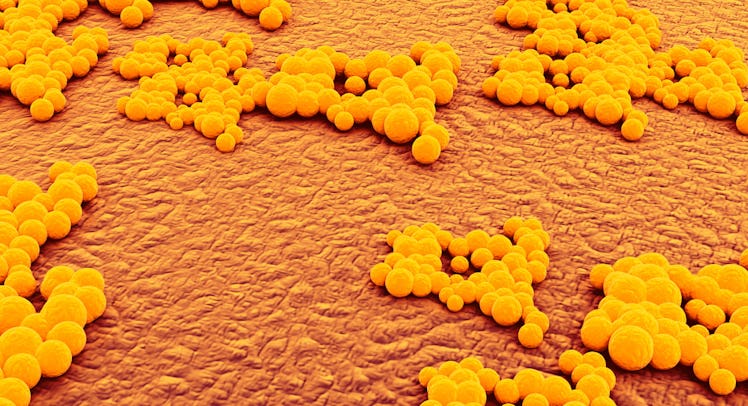This Infection Kills Nearly 150,000 Babies Every Year
Fast-tracking a new maternal vaccine is the best solution, according to more than 100 researchers.

One in five pregnant women carry the preventable disease, Group B Streptococcus, that causes nearly 150,000 stillbirths and infant deaths globally each year. Now a comprehensive 11-part study, compiled by more than 100 researchers and funded by the Bill & Melinda Gates Foundation, has taken a deep dive into the public health toll GBS takes on the most vulnerable babies in the world.
“Too many parents around the world face the death of a baby or a young child—avoidable GBS deaths are happening in every country,” said coauthor on the study Joy Lawn of the London School of Hygiene and Tropical Medicine, in a statement. Although antibiotics prevent an estimated 29,000 cases of GBS disease annually, Lawn stresses that the antibiotics are often unavailable in low-income regions, and that vulnerable populations are seldom screened for GBS before birth.
Group B Streptococcus is fairly common—up to 25 percent of pregnant and non-pregnant women in the U.S. carry the bacteria in their digestive systems or lower vaginal tracts. GBS is relatively benign until birth, when it can be passed on to fetuses through the amniotic fluid or to babies during labor. When GBS infects a baby, which inevitably has an underdeveloped immune systems, the child is at increased risk of contracting meningitis, septicaemia, and other fatal infections. Babies who survive may still face life-long issues, including hearing and vision loss as well as cerebral palsy.
For the new study, which contains 11 research papers, scientists pooled much of the available worldwide epidemiological data on GBS and concluded that, of 410,000 GBS cases each year, at least 147,000 result in stillbirths and infant deaths. About 18 percent of the population is carrying the bacteria at any given time, a figure that holds across 195 countries. This presents a problem, because it is impractical (and perhaps harmful) to give antibiotics to the estimated 21 million pregnant women worldwide who carry this bacteria. “Giving antibiotics to 21.7 million women may contribute to antimicrobial resistance—a major global health crisis,” Lawn says.
That’s one reason why researchers are scrambling to develop a vaccine for GBS. Although no vaccine is available at this time (Lawn thinks it’ll take at least another five years to develop), the study concludes that such an immunization could save 100,000 infant lives. “The vaccine process needs to be accelerated,” Lawn told The Guardian. “The World Health Organization is already moving to make sure that when we get a vaccine it will be available for countries where the need is highest.”
This article was originally published on